Review of the Marian Goodman Gallery New York William Kentridgeã¢â‚¬â„¢s Let Us Try for Once

By Dimitris Lempesis
Photograph: Marian Goodman Gallery
William Kentridge in his solo exhibition "Let Us Endeavour for Once", at Marian Goodman Gallery in New York, presents a new film, drawings and sculpture related to three major performance projects from the by two years. These include the epic theatrical tour "The Head & the Load", the production of Alban Berg's opera "Wozzeck" and "Ursonate" a operation of Kurt Schwitters' 1932 sound poem of the same championship, presented at Performa Biennial New York, in 2017. "KABOOM!" (2018) that inaugurates the exhibition is a three-channel work projected onto a model scaled to the stage of "The Head & the Load", alongside charcoal drawings used in the production. Birds, soldiers, historical figures, waterfalls, and landscapes recreate an imaginative topography. Information technology can be difficult to comprehend how easily Africa has been erased from world history. 1 powerful example is its involvement in Globe War I, which has been virtually forgotten, despite the fact that an estimated two million Africans were pulled into the disharmonize as soldiers, workers, and personnel both in Europe and in Africa, according to historians. Dissimilar the fighting in Europe, which mainly took identify in trenches, the war in Africa took place over long stretches of country. The lack of roads and railroads, combined with the fact that most horses roughshod victim to the Tsetse fly, prompted High german, French, and British forces to employ African porters (four to every soldier) to carry supplies and mechanism parts. "The Head & the Load" tells the story of the about 2 million African porters and carriers used by the British, French and Germans during the World War I in Africa through music, dance, film projections, mechanised sculptures and shadow-play. Invoking war and history itself as a subject, the charcoal drawings for projection provide a properties to Kentridge's signature trope of procession, a pageant of "what we've chosen non to remember": porters bearing the physical load that was carried all across Africa, simply also the historical legacy and paradoxes of colonialism, magnified by the war. Kentridge arrived at a project about war as a event of having finished a product of Alban Berg's opera "Wozzeck" in 2017, at the Salzburg Festival. The charcoal drawings used in the pattern of "Wozzeck", a span to subsequent projects–are on view in the North Gallery Viewing room and continue into the South Gallery. Re-inscribing a globe historically transformed past disharmonize, these grainy charcoal drawings echo the music, but besides the world they are depicting, of things transforming, of sounds nether the earth", and are drawn from documentary photographs of the ravaged Outset World War battlefields of Flanders. The composer Alban Berg brought his own feel of the Front to Wozzeck, written between 1914-22 and based on Georg Büchner's xixthursday Century play "Woyzeck". Additionally, several years prior, in 1992, Kentridge had adapted the drama as Woyzeck on the Highveld in a collaboration with the Handspring Boob Theater Company of Johannesburg. In the Tertiary Floor Project Infinite are drawings comprised of bold grids of color, text, truncated syllables, and figures and objects. A moving picture diptych, "Ursonate" (2018-19) relates to Kentridge's performance of Kurt Schwitters' 1932 audio poem "Ursonate" at the Performa Biennial in the Harlem Parish Church building, New York in 2017. Reiterating the idea of history as a strange relationship of written words to the world, Kentridge's invocation of the Dadaist legacy of illogic and absurdity are brought to light in this performance. As well Kentridge brings the viewer full circle with "Dictionary" a grouping of individual bronze sculptures which populate the exhibition, and are accompanied by "Paragraph 2". Based on a catalogue of forms both aboriginal and mod, from fine art history and from his own encyclopedic concordance of images, they range from relics of "The Head & the Load" to ubiquitous characters from a panoply of films. From carrier pigeon, pre-radar listening device, gas mask, war equus caballus, and tank, to a cat, reclining nude, flowers, a fan, and Durer's rhino, Kentridge proposes a universal archive of possible ideas. His interest is in the spaces of ambiguity, of provisionality, the possibility that a landscape of objects can be a rebus waiting to be read, images to be arranged and interpreted in different ways.
Info: Marian Goodman Gallery, 24 West 57th Street, New York, Duration: 1/3-20/iv/19, Days & Hours: Tue-Sat x:00-18:00, www.mariangoodman.com

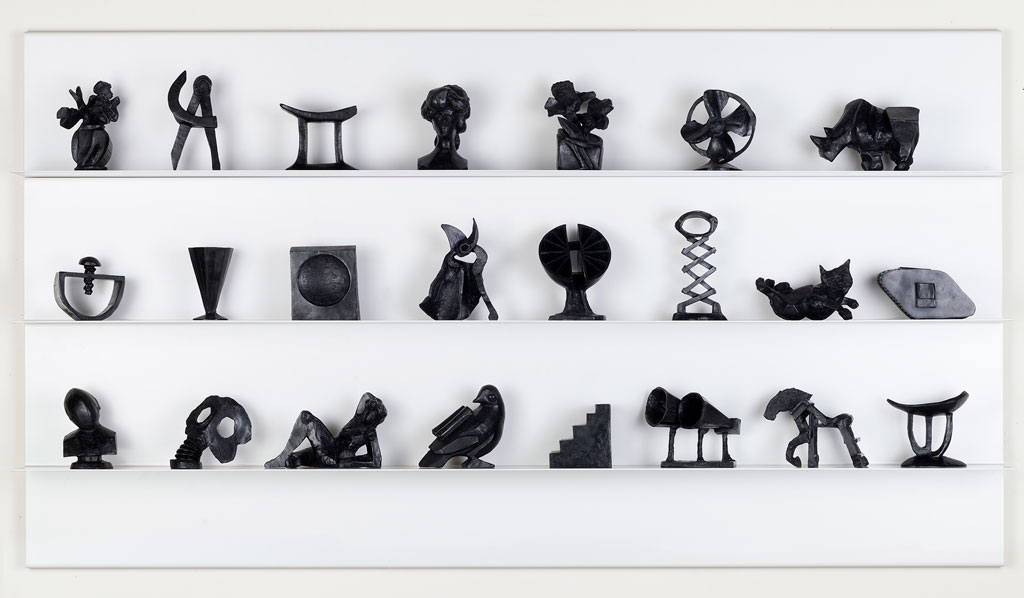
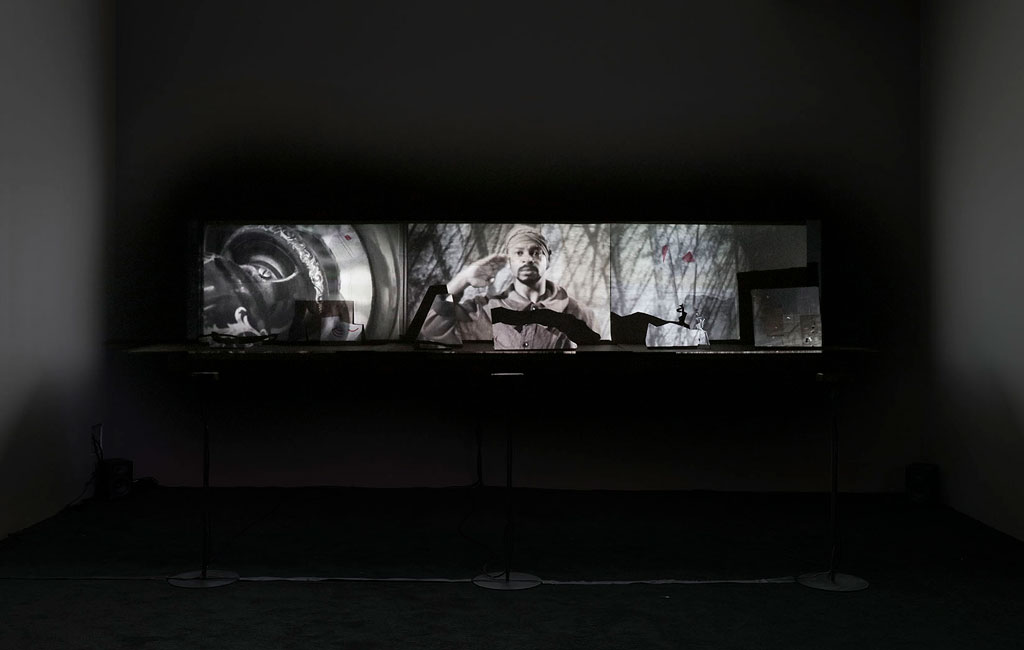
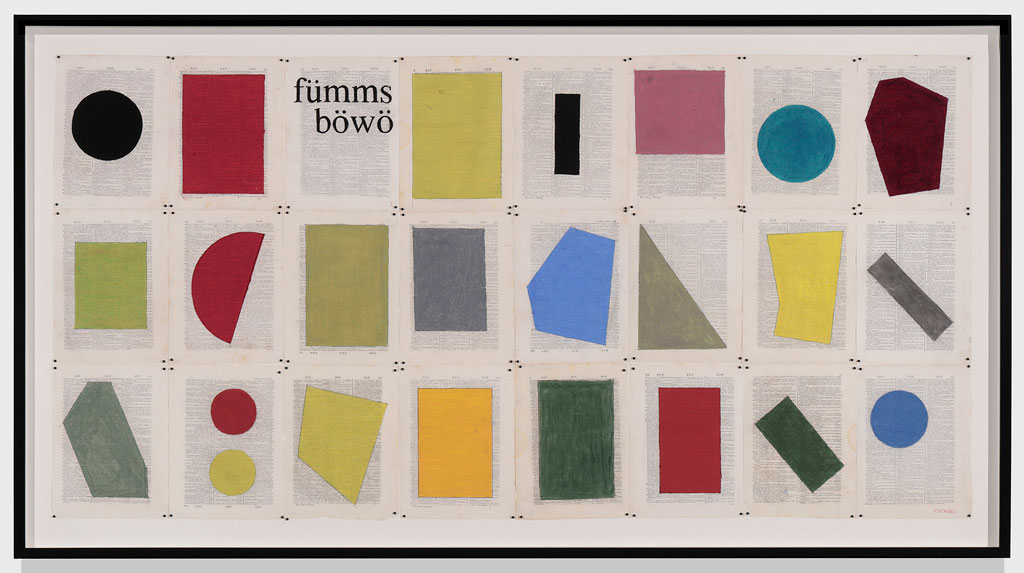
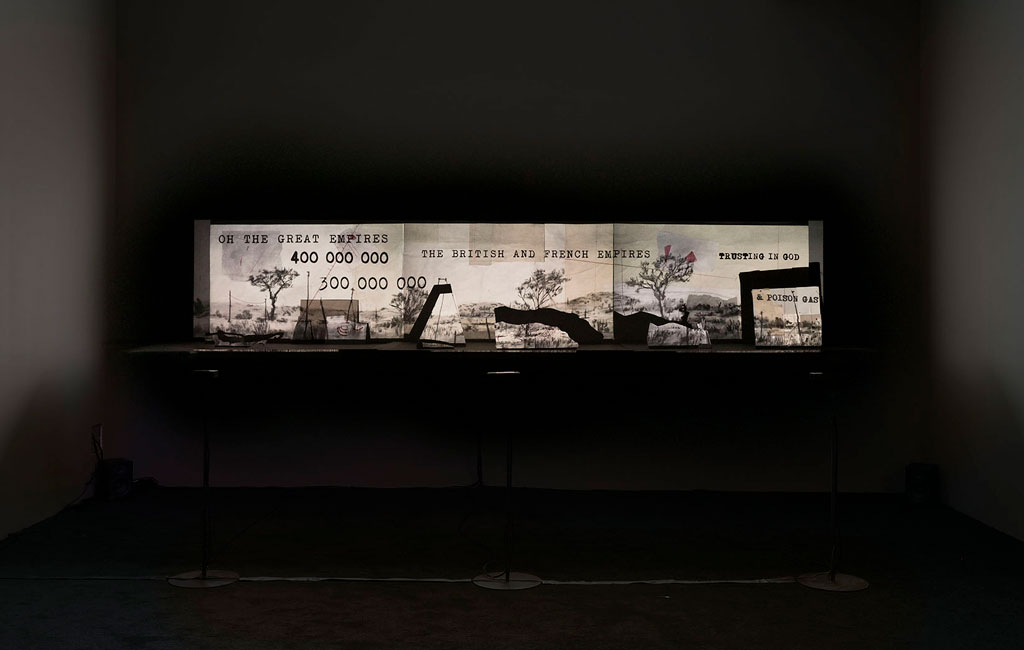
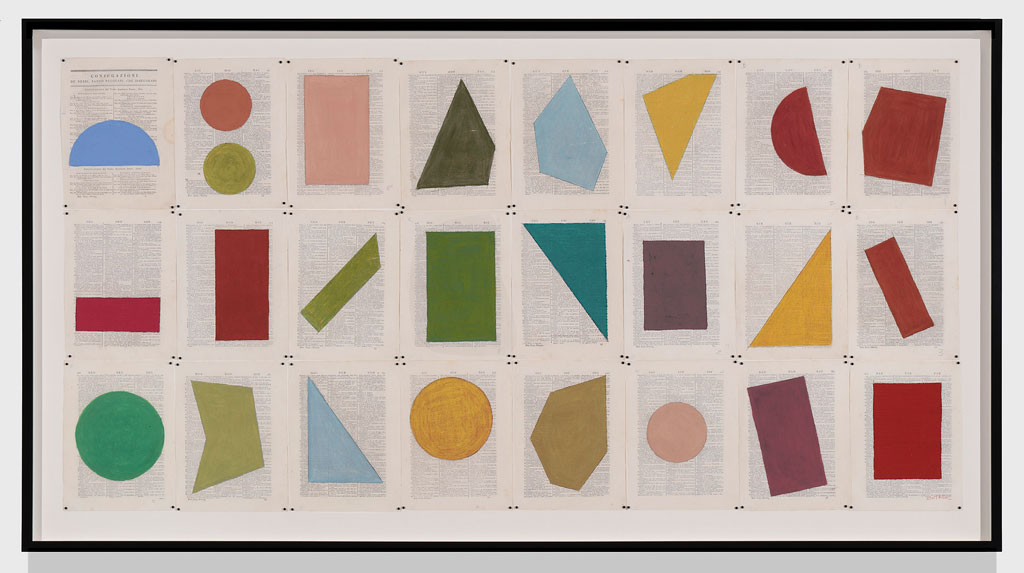
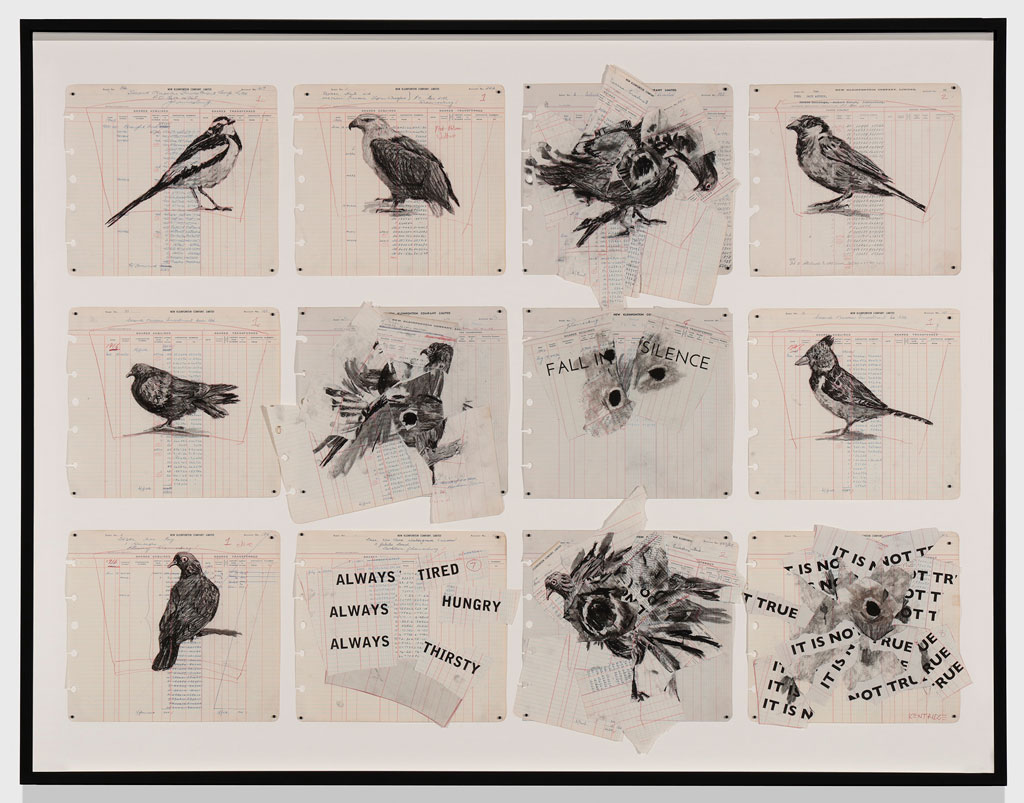

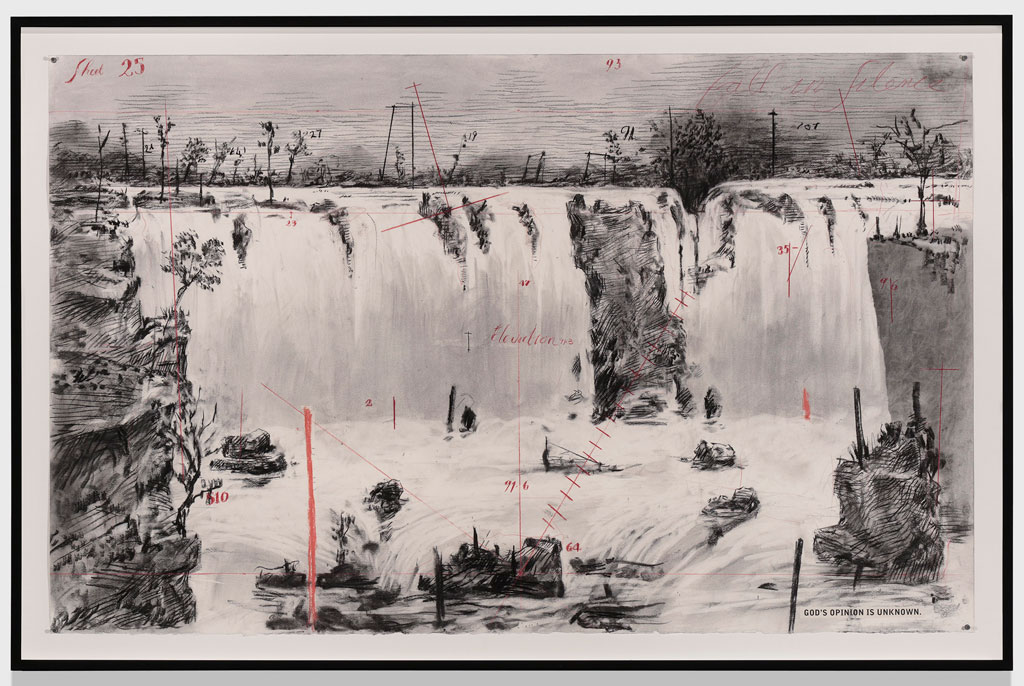
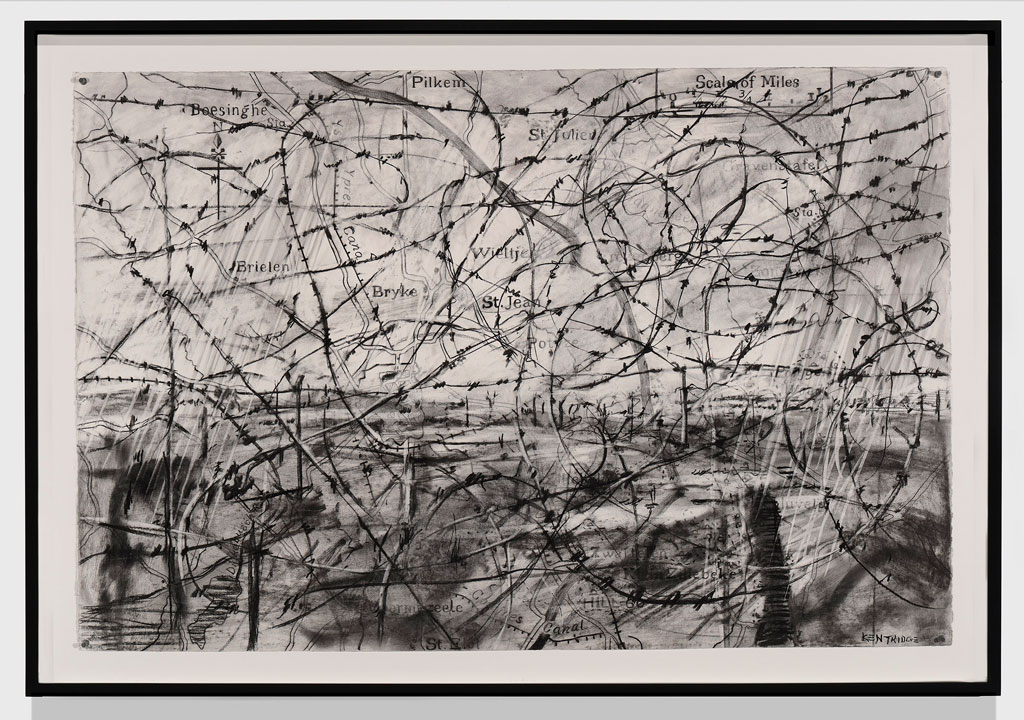
Source: http://www.dreamideamachine.com/?p=45816
0 Response to "Review of the Marian Goodman Gallery New York William Kentridgeã¢â‚¬â„¢s Let Us Try for Once"
Post a Comment